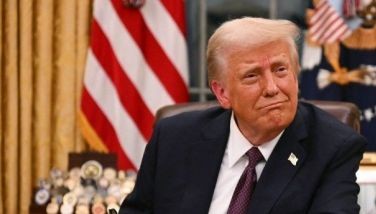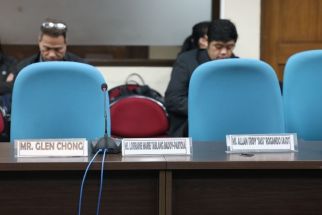2 industry groups reach accord on tariffs for petrochem raw materials

March 11, 2005 | 12:00am
The Association of Petrochemical Manufacturers of the Philippines (APMP) and the Philippine Plastics Industry Association (PPIA) were in agreement for once on imposing a 15 percent Most Favored Nation (MFN) tariff rate on imported petrochemical raw materials and finished plastic products to remove distortions during yesterday’s Tariff Commission hearing.
At present the existing MFN rate on some raw materials is at 15 percent, while the MFN rate on finished products is already down to seven percent, thus creating distortions.
The two industry associations were also in agreement on lowering the MFN tariff rate on 11 resin products not locally produced to between one to three percent.
The existing rate on the 11 resin products not locally produced ranges from three to 10 percent.
The APMP and the PPIA are normally at odds on the tariff issue since the APMP represents the midstream petrochem producers who want tariff protection against competing imports.
The PPIA, on the other hand, represents downstream plastics producers who want to be able to import cheaper polyethylene and polypropylene inputs which the midstream producers also manufacture.
While the APMP and the PPIA are in agreement on the MFN tariff rates, they are still at odds over the ASEAN-CEPT rates.
The Tariff Commission is currently conducting a review of the country’s MFN tariff rates to ensure efficiency and remove any possible distortions between raw material inputs and finished products.
Yesterday’s Tariff Commission hearing was specifically for chemicals and chemical products.
The APMP had filed a petition before the Tariff Commission last year asking the TC to maintain the existing CEPT rates on petrochemical products as contained in Executive Order 161.
Executive Order 161, which was issued in September 2002, temporarily suspended the application of the tariff reduction schedule on petrochemical resins particularly polyethylene, polypropylene, polystyrene and polyvinyl chloride and certain plastic products such as floor, wall or ceiling coverings and other plates, sheets, film, foil and strip of PVC under the CEPT scheme for the ASEAN Free Trade Area.
EO 161, however, it slashed the 15 percent tariff on petrochemical products to 10 percent while it maintained a five per cent tariff on plastics. The suspension was only for a period of two years.
The Philippine request for continued tariff protection for the specified products was intended to protect the country’s struggling petrochemical manufacturers who, two year hence, still need protection.
The continued suspension would benefit the JG Summit Petrochemical Corporation which is going ahead with its plan to put up a naptha cracker plant.
However, the proposed naptha cracker plant is expected to be operational only by 2008.
At present the existing MFN rate on some raw materials is at 15 percent, while the MFN rate on finished products is already down to seven percent, thus creating distortions.
The two industry associations were also in agreement on lowering the MFN tariff rate on 11 resin products not locally produced to between one to three percent.
The existing rate on the 11 resin products not locally produced ranges from three to 10 percent.
The APMP and the PPIA are normally at odds on the tariff issue since the APMP represents the midstream petrochem producers who want tariff protection against competing imports.
The PPIA, on the other hand, represents downstream plastics producers who want to be able to import cheaper polyethylene and polypropylene inputs which the midstream producers also manufacture.
While the APMP and the PPIA are in agreement on the MFN tariff rates, they are still at odds over the ASEAN-CEPT rates.
The Tariff Commission is currently conducting a review of the country’s MFN tariff rates to ensure efficiency and remove any possible distortions between raw material inputs and finished products.
Yesterday’s Tariff Commission hearing was specifically for chemicals and chemical products.
The APMP had filed a petition before the Tariff Commission last year asking the TC to maintain the existing CEPT rates on petrochemical products as contained in Executive Order 161.
Executive Order 161, which was issued in September 2002, temporarily suspended the application of the tariff reduction schedule on petrochemical resins particularly polyethylene, polypropylene, polystyrene and polyvinyl chloride and certain plastic products such as floor, wall or ceiling coverings and other plates, sheets, film, foil and strip of PVC under the CEPT scheme for the ASEAN Free Trade Area.
EO 161, however, it slashed the 15 percent tariff on petrochemical products to 10 percent while it maintained a five per cent tariff on plastics. The suspension was only for a period of two years.
The Philippine request for continued tariff protection for the specified products was intended to protect the country’s struggling petrochemical manufacturers who, two year hence, still need protection.
The continued suspension would benefit the JG Summit Petrochemical Corporation which is going ahead with its plan to put up a naptha cracker plant.
However, the proposed naptha cracker plant is expected to be operational only by 2008.
BrandSpace Articles
<
>
- Latest
- Trending
Trending
Latest
Trending
Latest
Recommended






























